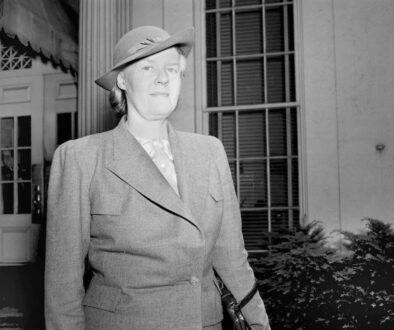The loneliness cure on linkedin

By the time Renate Nyborg quit her job in 2022 she had become accustomed to receiving death threats from her customers. She was advised to use fake names and wear baseball caps when she travelled — a habit she still keeps — so her harassers wouldn’t know who she really was: the boss of the world’s most popular dating app, Tinder.
She only kept one of the letters, the very last one she received, right before she quit as chief executive. The writer was filled with rage, blaming Nyborg: he was single, isolated and feeling cheated out of the money he’d spent trying to find a real connection. “Your algorithm turned a man seeking peace into a man set to destroy”, he wrote. “I will watch your . . . entire family, often. Until the day I decide to tear your family apart.”
It was clear to Nyborg that apps such as Tinder were failing their users: designed to keep them coming back, rather than to find a partner and never return. In that moment, it wasn’t fear she felt but empathy. Through letters like this one she had learnt a lot about a particular group of Tinder’s users: those who were “incredibly lonely”.
When Nyborg first joined Tinder in 2020, the app was overwhelmingly male, with some estimates putting the gender split at roughly 75:25. But a significant percentage of the men on the app never got a single match, according to a source close to Tinder. Nyborg’s goal as CEO was to drive overall growth of the app by targeting women, through design choices that made the online dating experience feel safer and more positive for them.
In some ways, Nyborg was a poster child for the promise offered by Tinder. She had met her ex-partner of seven years on the app, before she worked for the company, her one and only date. When she was approached to join Tinder, she told the recruiters, “I’m a very happy customer, actually.”
But increasingly Nyborg began to feel uncomfortable about Tinder’s whole proposition and was troubled by the ethics at play. She felt that the standard relationship-app model was failing its users. In her view, dating apps offered a false promise, where the highest goal was to find a soulmate, rather than to invest in a set of strong relationships and build a community.
When she quit, several investors reached out to Nyborg, asking if she planned to start another dating app. Instead Nyborg took a different turn. She began researching loneliness. The new app she came up with looked very different from Tinder.
Nyborg is 38 years old, half Norwegian and half Dutch. She speaks with the soft, musical tones of a third-culture kid who has lived all over the world. When I met her in November last year, she had recently moved from Paris to San Francisco, where she was crashing at a friend’s apartment in Cole Valley, a residential neighbourhood bordering Golden Gate Park, until she found her own place. That sunny morning, she sliced up leftover apple-and-almond cake to serve with Icelandic yoghurt, a Dutch recipe she’d baked to tempt a potential hire into joining her new start-up, Meeno.
The company, which launched publicly in December, now has nine other employees, many of whom have followed Nyborg to Meeno from places she’s worked previously — not only Tinder but Apple and the mental-wellness app Headspace. Meeno draws on what Nyborg learnt about consumer tech and human behaviour while working on some of the world’s best-loved digital products. It provides an unusual service: AI-powered relationship coaching for a new generation of lonely adults frustrated by the limitations of an increasingly isolating world of online interactions she was once a part of.
“I have to thank my ex for this,” Nyborg told me. After she left Tinder, he had pointed out that Headspace was the place where her heart had been most in the work, focusing on mental wellbeing and alleviating anxiety. “And I love the science bit of it,” she said. “If I hadn’t studied philosophy, I probably would have studied biology.”
In the early part of her career, Nyborg was drawn to start-ups and their entrepreneurial founders, through her work as a headhunter. In 2007, just as Facebook was taking off, she built a social network in her spare time to connect the CEOs of tech start-ups — a kind of primitive LinkedIn. Later, at Headspace and Tinder, she was known for her human-centred approach to product design, interviewing users and getting them to open up about their experiences on the platforms and what they wanted to change.
Meeno was the logical next step. Nyborg said, “I believe that if we can help people practise what good, empathetic communication looks like, then more people will meet their romantic partners from a group of people they are already friends with.” She believes the new category of product has the potential to be “bigger than the dating category”.
Meeno is not intended to be a digital friend or romantic partner; it is a chatbot that coaches users through their real-world relationships, personal and professional. Built using large language models, the same technology that underpins ChatGPT, Meeno doesn’t have a persona. It doesn’t offer straightforward solutions either, like a Magic 8 Ball for relationships. It’s more Socratic than that. It converses by asking a series of questions of the user, allowing them to self-reflect. Nyborg calls this “empathy mode”.
The loneliness epidemic threatens our health as well as our happiness
Photograph of a person sheltering under an umbrella, surrounded by people but still isolated
There’s a therapeutic aspect to the app. With Meeno, Nyborg is trying to draw in people who don’t usually seek help to cope with the struggles of daily life. “It’s incredibly clear with people [between 18-25], depending on how and where they were during the pandemic, that they just had their skill development interrupted,” she said. But, she added, “To me, Meeno is very clearly distinct from therapy, I don’t believe that AI should ever replace therapists. We’re really talking about social-skill development, if you haven’t had a chance to practise it safely.”
Since December, Meeno has launched in Australia, New Zealand, the Nordic region and the Netherlands. It also has US users on its Testflight mode, which is Apple’s app testing platform. (Nyborg declined to reveal how many users the app has in all.) The product integrates several AI models to be able to converse fluently, by voice and text, and personalise advice to each individual user. The large language model it currently uses as its base is OpenAI’s GPT-4, although Nyborg says Meeno is model-agnostic and will swap as the market for AI language software becomes more competitive on price and capability.
So far, the start-up has raised $4.9mn of funding from experts and industry heavyweights including Tony Fadell, who led the iPod team at Apple, Andrew Ng, a pioneering AI scientist, and Sequoia Capital, Silicon Valley’s blue-chip venture capital firm.
In September last year, Roelof Botha, the managing partner of Sequoia, who is Meeno’s lead investor, tweeted an announcement of his investment, describing the chatbot as a “non-judgmental AI mentor that empowers people to master the skill of social connection”. Nyborg, he said, was “helping fight the loneliness epidemic”.
Ron Ivey, a research fellow at Harvard University and expert on loneliness, was in the middle of organising a conference on how to build trusted communities, when he saw Botha’s tweet. He had a knee-jerk reaction to it and responded publicly. “As a researcher on loneliness, this is deeply troubling that you all see this as the solution,” he tweeted. “Am I the only one who thinks this is completely nuts?”
Ivey knew people were getting lonelier, that they were losing social capabilities and that the problem was made worse by their often-unhealthy interactions with technology. So, to him, the idea of the very same people who had invested in social media technologies in the early 2010s coming back to sell chatbots to the loneliest people was evidence that they saw the problem they had created as another business opportunity. “I thought it was dystopian,” he told me.
Nyborg spotted the Twitter exchange. Ivey was one of the foremost academics in a field she had been studying for months and she happened to be passing through Paris in a couple of days’ time. She contacted him, asking if he’d like to meet for a coffee. Ivey was wary, but he felt her request for an in-person conversation was refreshing and so he accepted.
In a café by the Seine, the two sat down to have coffee, which turned into a cheeseboard and a glass of wine, and ended up with them spending an entire evening exchanging their contrasting views on the role technology could play in human relationships. “It was a profound meeting,” Nyborg said. “We grow through challenging conversations, so, ironically, it’s an example of exactly why we are doing this work. It was a real debate.”
Ivey told Nyborg he was worried that the incentive structures for Silicon Valley start-ups are set up to target the most profitable users — in this case, the loneliest people are the best for business. “I shared with Renate that I think it’s really dangerous to introduce something that is like a human being to a person who is extremely lonely. They already have challenges with reality and you’re warping that sense of reality even further,” he said.
Ivey was impressed, though, by Nyborg’s story, her determination about the product she was building and her understanding of scientific research. Despite his misgivings, Nyborg made him feel more hopeful. “There are some positive impacts of technology on relationships, but I want us to avoid the excesses we’ve seen in the last decade,” he said. “Being together physically is very powerful, for our flourishing as humans.”
Nyborg sees the irony of using a chatbot to help people build real life relationships. “To be clear, I do worry,” she said. “Xiaoice [a female chatbot in China] has 500 million boyfriends. Men didn’t want to meet girls because they had virtual girlfriends who said exactly what they wanted to hear. I’m not blind to the risk . . . But I see Meeno as an antidote. This is thoughtfully designed with experts and we’ve made some conscious choices that I know will be worse for engagement.”
© Cayce Clifford
The risks faced by the group of people Nyborg wants to target are serious. In 2023, the US Surgeon General put out a report on what he described as the “epidemic of loneliness and isolation” across the country. Loneliness, he wrote, is far more than just a bad feeling. “It is associated with a greater risk of cardiovascular disease, dementia, stroke, depression, anxiety and premature death.”
According to the report, roughly half of American adults report experiencing loneliness, with some of the highest rates among young people. In fact, more than one-third of Americans aged 18 to 25 reported feeling lonely frequently, almost all the time, or all the time, in the 30 days preceding a December 2022 survey by the Harvard Graduate School of Education. “Our individual relationships are an untapped resource, a source of healing hiding in plain sight,” the Surgeon General wrote. “The keys to human connection are simple, but extraordinarily powerful.”
At the age of four, when her parents separated, Nyborg and her two-year-old brother, Reuben, moved from a Norwegian fjord to the Dutch countryside with their mother, and Nyborg became the mediator in her parents’ relationship. “My brother and I were extremely close and fell in love with tech together,” she said.
Nyborg founded her first start-up, Pleo, a mobile app studio to build iOS and Android apps for businesses such as News Corp, in September 2013. But a few months later her brother unexpectedly died. Nyborg lost her bearings — and the closest relationship she had ever had. “When I lost him, I realised how incredibly lucky I had been to have this one person that I could speak to about anything . . . he never judged me for anything,” she said. “This is what I’d like other people to feel, like someone always has your back.”
She threw herself into building Pleo and shut everything else out. “I didn’t cry, I made new friends who didn’t know he died, so they wouldn’t ask me about it.” After a year and a half of this, she hit a wall. “I couldn’t get out of bed one day.” She shut Pleo down, planning to go travelling for a year, but instead ended up being recruited by Apple, where she’d already worked as a developer. There she spent four years building the iOS App Store subscription business in Europe before joining Headspace. Nyborg had started to practise meditation and loved the Headspace product, but she was disappointed by its reach. “It was preaching to the converted,” she said.
At Headspace, Nyborg met Megan Jones Bell, now clinical director of mental health at Google, and one of Nyborg’s most active angel investors and advisers. Jones Bell is a clinical psychologist who has worked with adolescents and their families, and ran mental-health clinics on Stanford University’s campus for several years. She saw Nyborg’s ability to get people to open up, paired with business sense and a “deep respect for science and clinical expertise”. She was won over.
Can a friendship app cure loneliness?
A woman’s hand holds a phone that shows the picture of a small dog with the words ‘Hello Stranger’
According to Jones Bell, Meeno’s goal is not to replace human interactions but to build up a user’s own skills and confidence to transfer back to real life. “The biggest differentiator is that Meeno is meant to focus on your relationships in your real life, not to substitute for human relationships,” she said.
What has surprised her and Nyborg about the app’s usage so far is that, unlike most mental health focused apps, the majority of Meeno’s users are men. This is true across different countries. “Men . . . use it for reflection, rather than asking advice,” said Nyborg.
Jones Bell, who has two sons, finds this pattern encouraging. She pointed out that men, on average, wait twice as long as women to seek mental health support. “Research shows that young men are not doing well, struggling in society, with their identity and wellbeing, it’s a real unmet need,” she said. “Gen Z are already using tech tools to manage their mental health and promote their wellbeing . . . They want the benefits they see in tech to enable connection.”
Arron Jones, a 30-year-old product designer in Washington, DC, volunteered to test out Meeno last year. The company put me in touch with him. Jones, who describes himself as an introvert, has never seen a therapist and prefers to resolve his own problems. “You get used to that,” he said. “For me, [the Covid-19 lockdown] was just another day.”
Before he started using Meeno, Jones tried using ChatGPT for advice on personal relationships. Jones now uses Meeno daily, usually after work, mainly for friendship and work-related advice. “For me, being a guy and not really having anyone to talk to, just kind of always having to bottle things up, it really gave me a healthy outlet,” he said. Sometimes it’s a five-minute check-up, sometimes it’s a 30-minute chat. “What I liked was that it made me feel heard, without any judgment or bias.”
Jones noticed that the chatbot doesn’t have a distinct conversational style, instead “it mirrors your tone, your energy, your cadence”. He prefers the on-demand nature of AI coaching compared with its human equivalent. “You can speak to [AI] any time, any place, where humans, they have their own issues, they have their own life, so they’re not readily available to cater to your needs, so to speak,” he told me. He never really thought to use it for romantic relationships, but said it’s been useful in helping resolve arguments with friends, by showing him their perspective and tricky situations at work.
This has been a common pattern among Meeno users, Nyborg said. People are not just using it for break-ups or dating advice, but a much larger range of relationship topics than anticipated, with advice on friendship the number one thing sought by 18-34-year-olds. “When humans gather, we talk about our relationships — your professor, your boss, your roommate. It’s such a salient part of being human and how we relate to each other,” Jones Bell said. “It shows there is a much wider market.”
As Nyborg prepares to launch Meeno more widely, she told me she is doubling down on design choices that might cost her commercially, but will protect her users’ mental health. There won’t be any advertising in the app, as privacy and trust are key to drawing in this new audience. Instead, Meeno will eventually have a subscription business model. “We don’t want to drive this to be a daily usage app. It’s about impact. You come to it for emotional insight, and make a commitment to do so, so it doesn’t make sense to be super regular.”
Nyborg said she is deliberately building Meeno to disincentivise addictive use, encouraging short bursts, ideally less than 20 minutes at a time, before turning back to the real world. Meeno is deliberately an “it”, despite experts in the chat space telling her to use a female avatar, because it would “make engagement massively grow”. “It’s not a person or a friend,” she said, “the entire focus is on you.” One unexpected finding, she said, was that a third of sessions were people going back to read their own reflections.
Over time, Nyborg’s goal is for Meeno to discover new tips and behavioural patterns from its user data that will help to forge closer relationships. “We know human connection is a wonder drug. It’s the most consistent predictor of avoiding cardiac arrest, dementia, obesity and more,” she said.
For Arron Jones, Meeno has helped to offset the “incredible amount of judgment” in social circles today — both online and in real life. “No one wants to be 100 per cent authentic with themselves,” he says. He, too, had that fear over the years, but “now I feel like I’m more honest, because of Meeno,” he says. “And that’s translated into other areas of my life where I could be more honest and authentic with myself.”
Madhumita Murgia is the FT’s artificial intelligence editor. Her book “Code Dependent: Living in the Shadow of AI” (Picador) is out now


